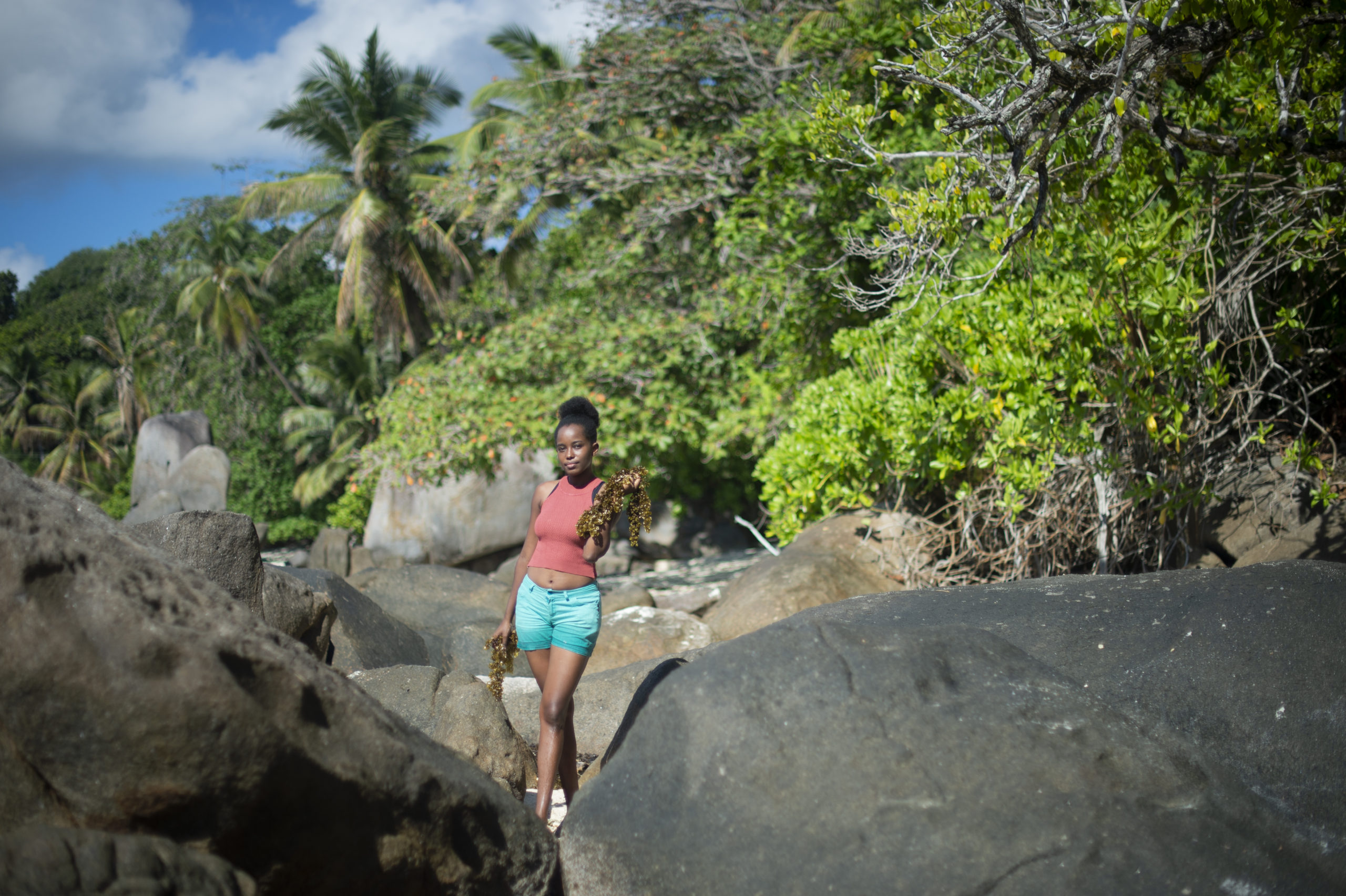BGF#4
Type: Small
SeyCCAT strategic objective: 5
Lead Project Partner: Mariette Dine
Partners:
University of Seychelles, Seychelles Agricultural Agency (SAA), Seychelles Fishing Authority (SFA), Seaweed Seychelles and other identified stakeholders during the project
Summary:

Mariette Dine stands on a beach holding a clump of seaweed on the main island of the Seychelles on 12 December 2021. Mariette, a graduate student, is currently experimenting with seaweed to make various types of bioplastics that one day could help to replace regular plastics on the island and reduce conventional waste.
The economic development of Seychelles is mainly concentrated on the narrow coastal lines of the three main populated islands namely Mahe, Praslin, and La Digue, and has been performing well over the recent years (Temesgen, 2018). The development of agriculture, tourism, and other activities is done on its narrow coasts and is rather limited due to land scarcity and therefore Seychelles is highly dependant on the importation of goods and services worth about $1.05 billion in 2011 (Breuil & Grima, 2014). Its isolation and smallness leave Seychelles highly vulnerable to the effects of climate change such as; sea-level rise, intensified hazardous storms, coastal erosion, and flooding (World Bank, 2019) and other externalities such as the 2008 global financial crisis (Temesgen, 2018). The country, therefore, uses hybrid approaches to manage its coastal areas by advocating for sustainability and taking steps forward to develop the blue economy as a way forward to the sustainable management of our exclusive economic zone (EEZ) of about 1.4 million km2 (World bank, 2019). The COVID-19 (Coronavirus) global pandemic has called for an urgent need to diversify our economy and to increase Seychelles resilience against external shocks, this entails ensuring food security by increasing productivity, push for innovative ideas and entrepreneurial development linked to the blue economy; where the opportunity lies in added value goods such as shrimp production and seaweed cultivation and other economic activities (African development bank group, 2020). Furthermore, this external shock has also pushed the need for capacity building in the different sectors and education systems alike, such as the University of Seychelles which does its part to advocate for sustainability through different courses available and incorporates ocean literacy as part of the curriculum. The master’s program in Marine Science and sustainability on offer equips students with comprehensive knowledge of marine and coastal ecosystems whilst taking a holistic approach to the inter-connectivity between ecosystems and human activities linked to economic development. Students are required to work on an independent study at the end of the course of which this project proposal calls for funding to help with its implementation.
SeyCCAT funds: SCR 100,000
Co-financing: In-kind; Part of the project focuses on implementing the masters’ thesis and will be making use of the laboratory equipment and other facilities of Unisey and Seychelles Agricultural Agency to conduct the research, may also need the assistance of other key stakeholders such as the Seychelles Fishing Agency to assist with seaweed cultivation and the Seychelles Bureau of Standards to assist with certain tests.
Duration: 12 months
Project Application Form: Coming soon!
Environment and social management Plan: Coming soon!
